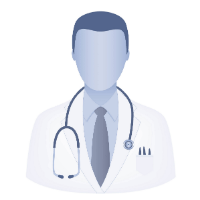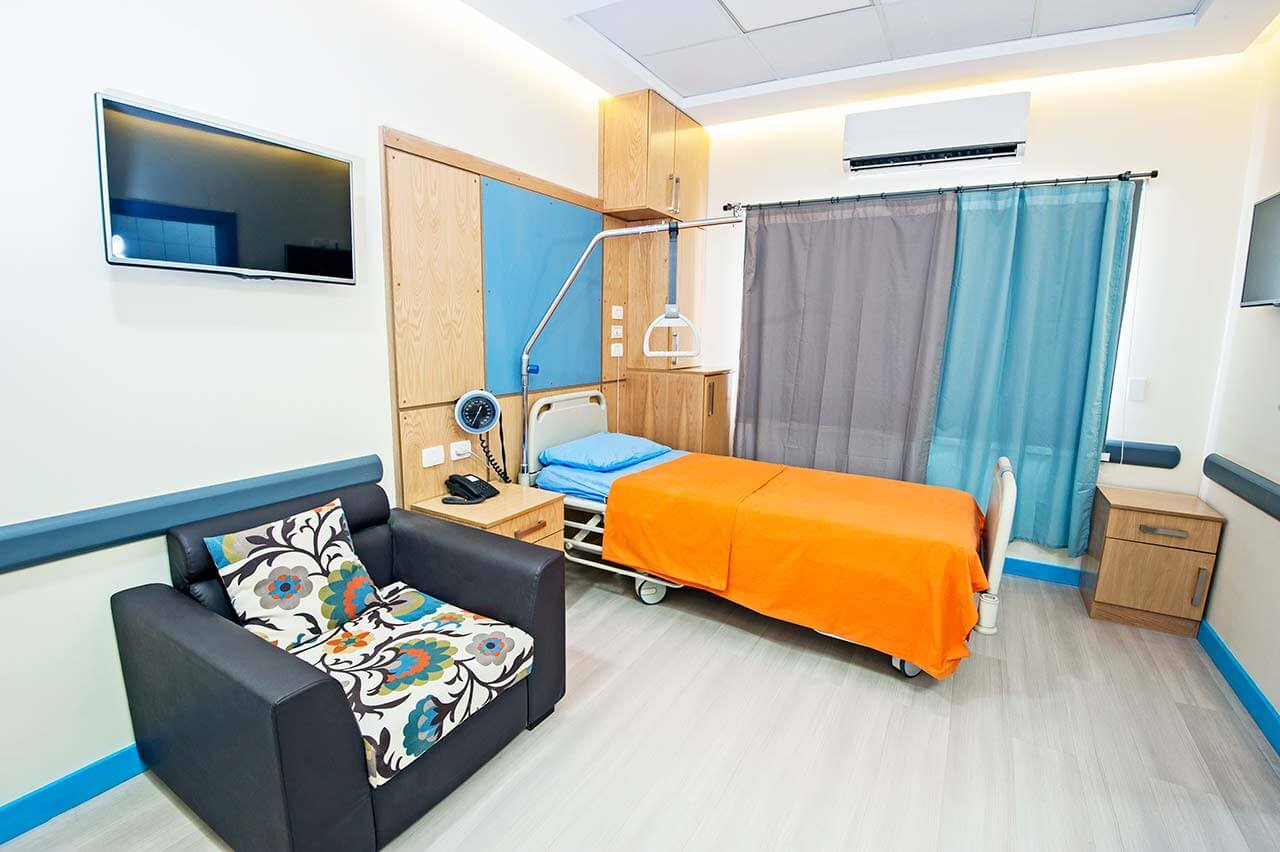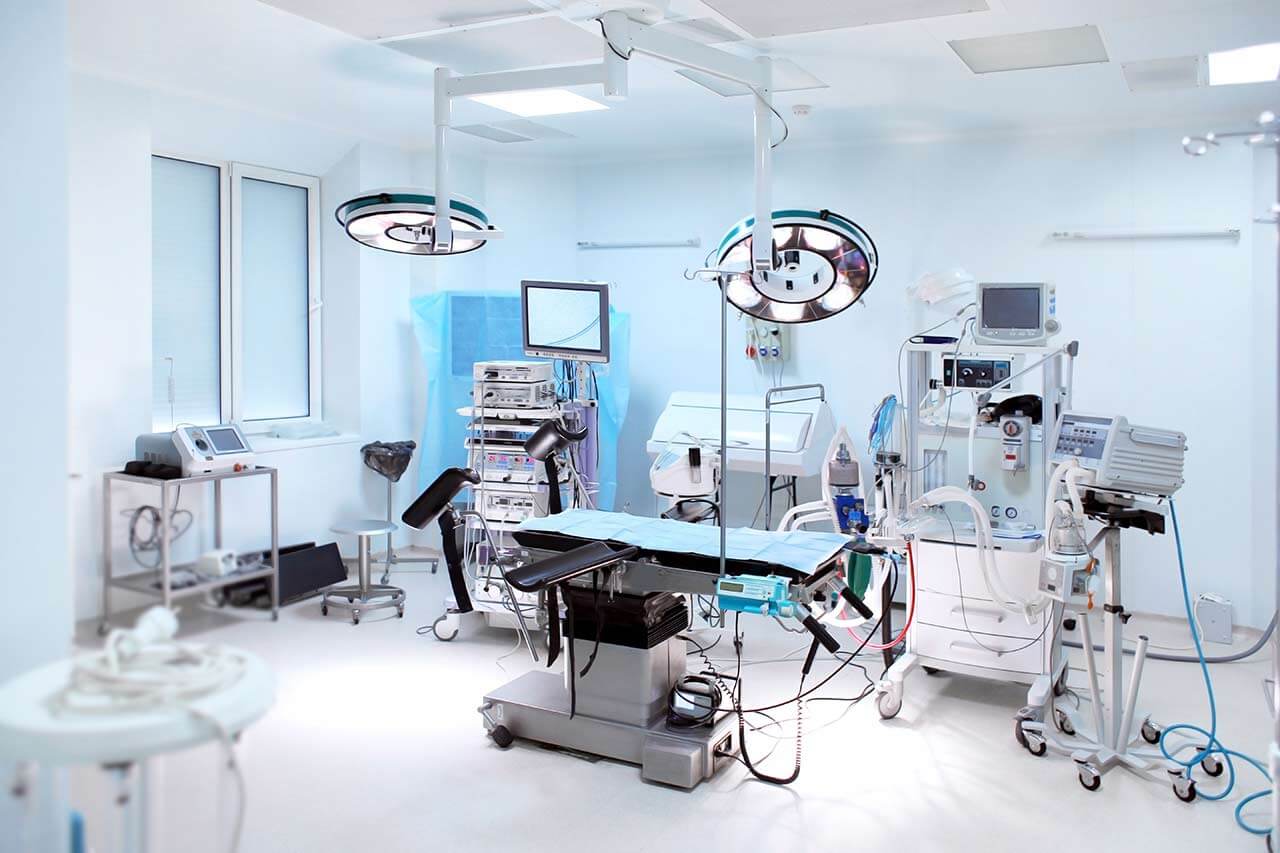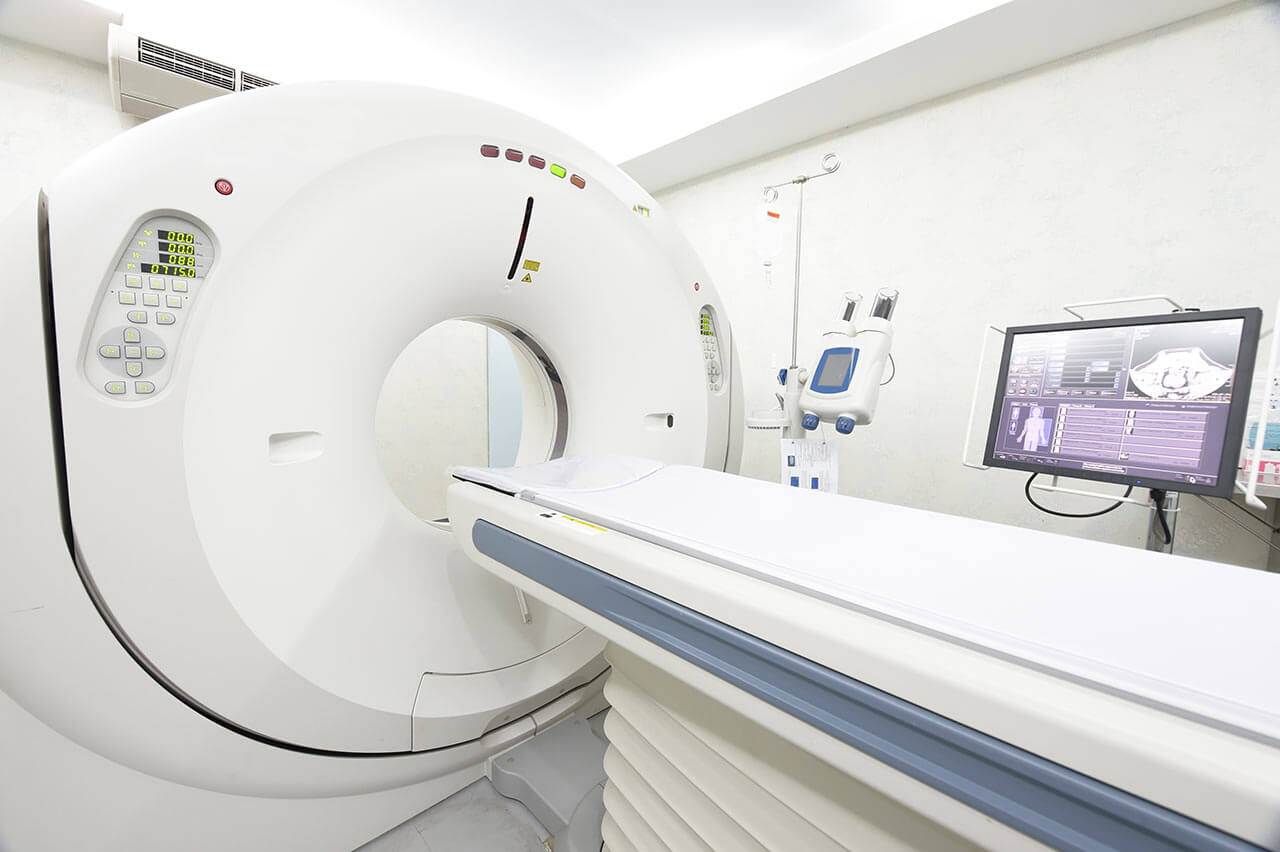
The program includes:
- Initial presentation in the clinic
- clinical history taking
- review of medical records
- physical examination
- laboratory tests:
- complete blood count
- biochemical analysis of blood
- inflammation indicators (CRP, ESR)
- indicators blood coagulation
- TSH-basal
- x-ray and bronchography
- electrocardiogram (ECG)
- high-resolution computed tomography (HR-CT)
- collected three sputum samples
- tuberculin skin test
- pulmonary function test
- blood gas analysis
- bronchial lavage
- bacteriological and microbiological examination
- consultation of related specialists
- symptomatic specific treatment
- the cost of essential medicines and materials
- nursing services
- control examinations
- full hospital accommodation
- developing of further guidance
Required documents
- Medical records
- Chest X-ray, MRI/CT scan (if available)
Service
You may also book:
 BookingHealth Price from:
BookingHealth Price from:
About the department
The Department of Pulmonology at the University Hospital Carl Gustav Carus Dresden offers the full range of diagnostics and treatment of diseases of the respiratory tract (pathologies of the trachea and bronchi, chronic obstructive pulmonary disease) and lungs (pneumonia, pulmonary fibrosis, cancer), pulmonary hypertension, pleural diseases (pleurisy, pleural mesothelioma), sleep-related breathing disorders (obstructive/central sleep apnea), as well as pathologies of the respiratory muscles. The department also specializes in the treatment of rare lung diseases. Lung cancer treatment is based on an interdisciplinary approach and is carried out with the participation of specialists from the Comprehensive Cancer Center Dresden: oncologists, surgeons, radiologists, psychologists and other doctors. The department has a specialized laboratory for the treatment of the consequences or complications of the coronavirus infection. All diagnostic and therapeutic procedures are performed in accordance with modern clinical protocols. The department's doctors specialize in the drug therapy and endoscopic treatment of pulmonary diseases, and if surgical treatment is required, thoracic surgeons are involved in the process. The Head Physician of the department is Prof. Dr. med. Dirk Koschel.
The department positions itself as one of the largest German medical facilities specializing in the treatment of pulmonary hypertension. The patients with this disease undergo comprehensive diagnostics here, receive effective treatment and follow-up care. In addition, the department's doctors demonstrate excellent results in the treatment of patients with bronchial asthma and other allergic lung diseases. To provide high-quality medical care to adults with cystic fibrosis, doctors cooperate closely with highly specialized experts, particularly, with endocrinologists, physiotherapists, gastroenterologists, psychologists, nutritionists, thoracic surgeons, rheumatologists and other doctors.
As of today, lung cancer is one of the most common types of oncology, and therefore the department's pulmonologists, along with the specialists from the Cancer Center Dresden, provide treatment to patients with this type of cancer. If oncology is suspected, comprehensive diagnostics is carried out, including laboratory, instrumental and imaging tests. Should the diagnosis be confirmed, doctors determine the stage of the cancer process, the type of tumor, its exact location and other important characteristics that influence the choice of treatment regimen. The main treatment for lung cancer is surgical resection of a malignant tumor (in some cases, resection of the affected segment or lobe of the lung is required). Lung cancer surgery is performed by thoracic surgeons. Conservative lung cancer treatment methods include chemotherapy and radiation therapy.
Due to the coronavirus pandemic, more and more patients with this infectious disease visit the department. First of all, doctors perform comprehensive diagnostics of the respiratory system, recommend breathing exercises and physiotherapy procedures, as well as prescribe medicines to improve the patient's health and restore his vitality.
The department's main clinical focuses include:
- Endoscopic examination of the respiratory tract with a flexible or rigid bronchoscope, which, depending on the indication, can be supplemented by bronchoalveolar lavage and direct lung biopsy (transbronchial biopsy)
- Endobronchial ultrasound-guided aspiration biopsy (EBUS) for intrathoracic lymph node puncture
- Bronchoscopy with endoscopic lung volume reduction in patients with severe COPD, pulmonary emphysema
- Right heart catheterization (within the specialized laboratory) with the examination of pulmonary blood flow in patients with pulmonary hypertension to assess hemodynamics at rest and during physical exercises
- Laboratory for pulmonary function testing with spirometry, general plethysmography, ergospirometry, as well as respiratory muscle strength measurement, blood gas test and inhalation provocation tests
- Chest ultrasound to detect pleural diseases
- Ultrasound-guided puncture for pleural and lung tumors, pleural drainage placement
- Interdisciplinary sleep laboratory with the ability to perform polygraphy, polysomnography (on an outpatient and inpatient basis), clinical tests (for example, multiple sleep latency test (MSLT) or pupillographic sleepiness test), as well as various therapeutic measures (for example, non-invasive lung ventilation with a mask at night)
- Other diagnostic and therapeutic methods
Curriculum vitae
Prof. Dr. med. Dirk Koschel heads the Department of Pulmonology at the University Hospital Carl Gustav Carus Dresden. He also simultaneously holds the post of Head Physician of the Department of Pulmonology at the Specialized Hospital Coswig. Both hospitals established the East German Lung Center (ODLZ) in 2017. Prof. Koschel pays special attention to the provision of medical care for patients with chronic lung diseases and lung cancer. In addition, the treatment of infectious and vascular diseases of the lungs is of particular interest. Dr. Koschel has been associated with the Technical University of Dresden for many years: in 2014 he underwent habilitation here and received Venia legendi in pulmonology.
Photo: (с) depositphotos
About hospital
According to the reputable Focus magazine, the University Hospital Carl Gustav Carus Dresden ranks among the top five German hospitals!
The hospital is the benchmark for modern high-quality medicine. Positioning itself as a maximum care medical facility, the hospital represents all medical fields. There are 26 specialized departments, 6 institutes and 17 interdisciplinary centers, which cooperate closely with the clinical and scientific facilities of the Faculty of Medicine. The basis of successful practice is excellent equipment, which is regularly updated, as well as highly qualified, experienced medical personnel: world famous doctors and professors work here for the benefit of patients.
In addition to its main goal of caring for patients, the hospital is also active in training and professional development of medical personnel, as well as in the field of public health care. The priority focus of the work is research activity, which allows the doctors to introduce the innovative diagnostic and therapeutic techniques into clinical practice.
A special feature of the hospital is also the diagnostics and treatment of rare diseases. State-of-the-art equipment and well-coordinated work of doctors of various medical specialties make it possible to timely recognize pathologies rarely encountered in medical practice and select the most effective therapy. Specialization in rare diseases include neurology, endocrinology, hematology/oncology, and rare autoimmune diseases.
The hospital has 1,410 beds for patient hospitalization. About 55,900 inpatients and more than 233,975 outpatients undergo treatment here annually. A large medical team, consisting of about 1,000 highly qualified doctors, as well as over 2,000 nursing staff take care of the patients' health. Each patient is guaranteed an individual approach and the most effective treatment in accordance with current clinical protocols.
It should be noted that the university hospital enjoys an impeccable reputation not only in Germany, but also far beyond its borders, including Arab countries, post-Soviet states, Great Britain and the United States. Patients from different parts of the world come here for high-quality treatment for diseases of any severity. The highest credit of patient confidence is the main indicator of the fruitful work of doctors.
Photo: (с) depositphotos
Accommodation in hospital
Patients rooms
The patients of the University Hospital Carl Gustav Carus Dresden live in comfortable rooms made in bright colors and equipped with everything necessary. The standard patient room includes an automatically adjustable bed, a bedside table with a sliding table, a wardrobe, a telephone and a TV. There is also Wi-Fi (free) in the patient rooms.
If desired, patients may live in enhanced comfort patient rooms. These patient rooms have a more sophisticated design, upholstered furniture and a safe for storing valuables.
Meals and Menus
The patients of the hospital are offered a tasty, healthy and varied three meals a day. The menu is based on local cuisine and seasonal food. If you for some reason do not eat certain products, please inform the medical staff of the hospital in advance, and you will be offered an individual menu. The nutrition provided in the hospital is certified in accordance with the quality standards of the German Nutrition Society (DGE) for catering in German hospitals.
Further details
Standard rooms include:
Religion
The religious services are available upon request.
Accompanying person
Your accompanying person may stay with you in your patient room or at the hotel of your choice during the inpatient program.
Hotel
You may stay at the hotel of your choice during the outpatient program. Our managers will support you for selecting the best option.
The hospital offers a full range of laboratory diagnostic procedures (general, hormonal, tests for tumor markers, infections, antibodies, etc.), genetic tests, various modifications of ultrasound scans, CT scans, MRI and PET / CT, angiography, myelography, biopsy and other examinations. Treatment with medications, endoscopic and robotic operations, stereotaxic interventions is carried out here, modern types of radiation therapy are also used. The hospital offers patients all the necessary therapeutic techniques.
- Cochlear implantation
- Deep brain stimulation
- Treatment of benign prostatic hyperplasia with green laser
- Da Vinci prostatectomy
- Bone marrow transplantation
These are head and neck tumors, hearloss, amyotrophic lateral sclerosis, epilepsy, Parkinson disease, infertility, malignant tumors of the reproductive system, congenital anomalies of the genital organs and the urinary system, urinary incontinence, blood clotting disorders, leukemia and other pathologies.
- Otolaryngology (Center for Cochlear Implantation)
- Neurology and Epileptology
- Urology
- Oncology
- Gastroenterology and Hepatology
About 1,000 highly qualified doctors work at the hospital.





